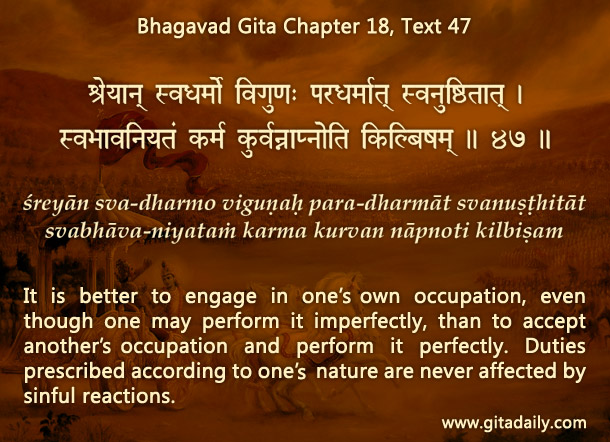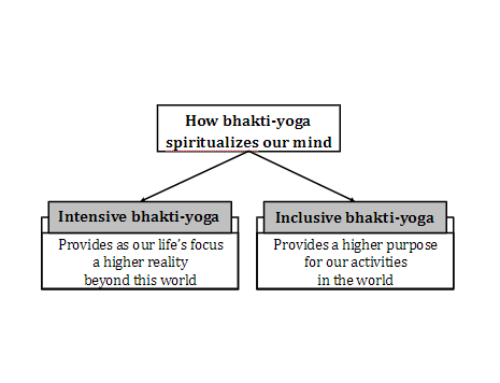Some people think that to seek God, we must renounce the world, go to a secluded place in a forest and meditate on him in the privacy of the heart.
That can be one way of seeking God, but that is not the way recommended by the Bhagavad-gita. The Gita’s recommendation of engaged devotion arises from its inclusive conception of God. He exists not just beyond the world as a transcendental all-attractive lover, but also in the world as an immanent overseer. And he can be accessed in both manifestations. The Gita (18.46) conveys his relationship with the world – he is its source and he pervades it – as the prelude for exhorting us to worship him through our work. Our talents come from him (07.08) and are meant to be used for serving him practically, thereby contributing to the world.
Yes, we need phases of withdrawal from the world for exclusively focusing on Krishna to spiritualize our consciousness and infuse it with a service attitude. Such service attitude is not just a sentimental notion that whatever we are doing, we are doing it for Krishna. It has to be a conscientious and consistent redirection of our head and heart towards him, driven by the conviction that he alone can fulfil our deepest longings for peace, love and joy. Having renewed ourselves through such withdrawal, we can then engage in the world for his service according to our social position and personal disposition. The Gita itself comprises such an intellectual retreat that empowers Arjuna to engage wholeheartedly in the ensuing war for establishing dharma.
When we learn to seek God both in the privacy of our heart and the activity of the world, our entire life becomes enriched with his supremely fulfilling divine presence.
To know more about this verse, please click on the image
Explanation of article:
Podcast:



Leave A Comment